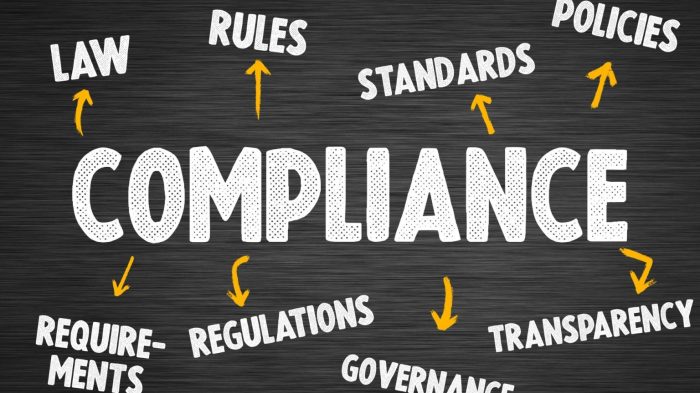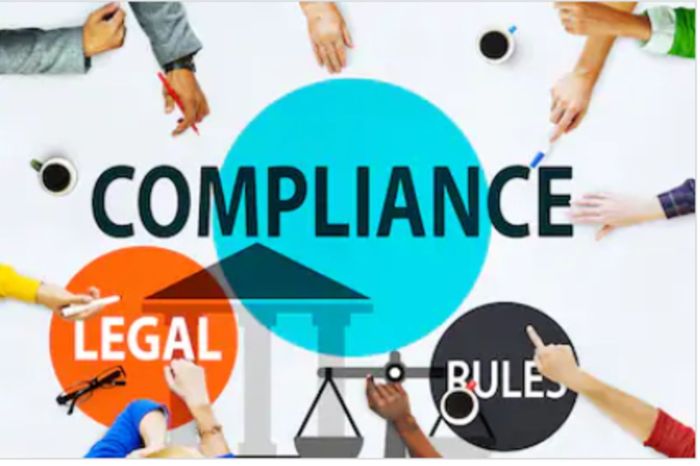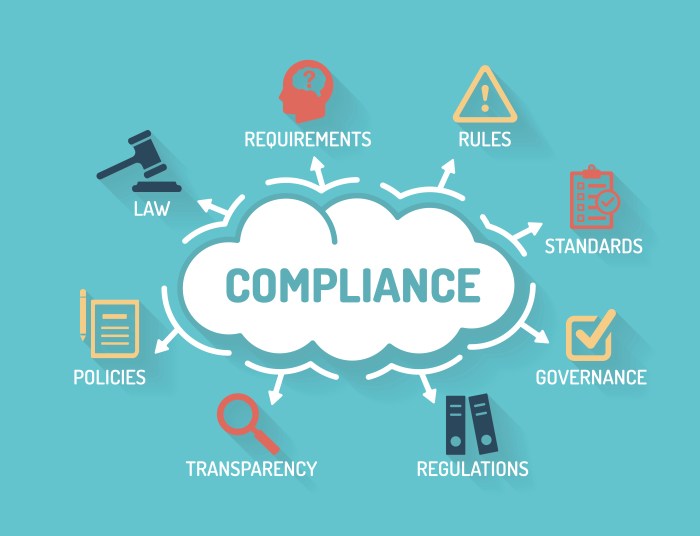Legal Compliance Tips for Field Service Businesses: A Comprehensive Guide
Legal Compliance Tips for Field Service Businesses are essential in ensuring smooth operations and avoiding legal pitfalls. Dive into this guide for valuable insights and practical advice that can benefit your field service business.
In the following paragraphs, we will explore the importance of legal compliance, key regulations and laws to be aware of, strategies for implementing compliance policies, training programs, auditing efforts, and handling non-compliance incidents.
Importance of Legal Compliance in Field Service Businesses
Legal compliance is a critical aspect for field service businesses to ensure smooth operations, maintain trust with customers, and avoid costly legal issues. Failure to comply with legal requirements can lead to fines, lawsuits, damage to reputation, and even business closure.
Examples of Legal Requirements
- Proper licensing and permits: Field service businesses must obtain the necessary licenses and permits to operate legally in their industry.
- Health and safety regulations: Compliance with safety standards and regulations is crucial to protect both employees and customers.
- Data protection laws: Businesses must adhere to data privacy laws when handling customer information to prevent data breaches and legal consequences.
- Insurance requirements: Having the right insurance coverage is essential to protect the business from liability claims and lawsuits.
Consequences of Non-Compliance
- Financial penalties: Non-compliance with legal regulations can result in hefty fines that can significantly impact the business's bottom line.
- Lawsuits and legal action: Failure to comply with legal requirements can lead to lawsuits from customers, employees, or regulatory authorities.
- Reputation damage: Non-compliance can tarnish the business's reputation, leading to loss of trust among customers and partners.
- Business closure: In severe cases of non-compliance, businesses may face closure or suspension of operations by regulatory bodies.
Key Regulations and Laws for Field Service Businesses

In order to operate legally and ethically, field service businesses must adhere to a set of regulations and laws that govern their operations. These regulations are put in place to protect consumers, employees, and the environment, as well as to ensure fair competition among businesses.
Failure to comply with these regulations can result in fines, legal action, and damage to a company's reputation.
Licensing and Permit Requirements
- Field service businesses are often required to obtain specific licenses and permits to operate legally in their respective industries.
- These licenses and permits may vary depending on the type of services provided, the location of the business, and other factors.
- Operating without the necessary licenses and permits can lead to severe penalties and even the shutdown of the business.
Health and Safety Regulations
- Field service businesses must comply with health and safety regulations to ensure the well-being of their employees and customers.
- This includes providing proper training, safety equipment, and protocols to prevent accidents and injuries.
- Non-compliance with health and safety regulations can result in costly fines, lawsuits, and reputational damage.
Data Protection and Privacy Laws
- Field service businesses that handle sensitive customer data must comply with data protection and privacy laws.
- This includes obtaining consent before collecting personal information, securing data from breaches, and following proper data disposal procedures.
- Violations of data protection and privacy laws can lead to legal action, financial penalties, and loss of customer trust.
Environmental Regulations
- Field service businesses that deal with hazardous materials or chemicals must adhere to environmental regulations to minimize their impact on the environment.
- This includes proper disposal of waste, pollution prevention measures, and compliance with emissions standards.
- Failure to comply with environmental regulations can result in fines, legal action, and damage to the environment.
Implementing Compliance Policies and Procedures
Implementing compliance policies and procedures is crucial for field service businesses to ensure they operate within legal boundaries and avoid penalties. By designing a compliance policy framework tailored to the specific needs of field service businesses, organizations can create a roadmap for maintaining regulatory compliance.
It is essential to organize steps that help employees understand and follow compliance procedures effectively. Additionally, leveraging technology can aid in monitoring and enforcing compliance, streamlining processes, and reducing the risk of non-compliance.
Designing a Compliance Policy Framework
- Identify relevant regulations and laws applicable to field service businesses.
- Develop clear and concise policies that Artikel compliance requirements.
- Establish procedures for regular audits and reviews to ensure adherence to policies.
- Communicate policies effectively to all employees and provide training on compliance.
Organizing Steps for Employee Compliance
- Assign specific roles and responsibilities for compliance within the organization.
- Implement reporting mechanisms for employees to raise compliance concerns.
- Conduct regular training sessions to educate employees on compliance procedures and updates.
- Monitor employee compliance through performance evaluations and feedback mechanisms.
Utilizing Technology for Monitoring and Enforcement
- Implement compliance management software to track regulatory changes and updates.
- Utilize data analytics tools to identify potential compliance risks and trends.
- Automate compliance monitoring processes to ensure real-time adherence to policies.
- Integrate compliance tools with existing systems for seamless enforcement.
Training and Education on Legal Compliance
Training and education on legal compliance are crucial for field service businesses to ensure that employees understand and adhere to the laws and regulations governing their industry. By providing comprehensive training programs, businesses can mitigate the risks of non-compliance and protect their reputation.
Importance of Training Programs
- Training programs help employees understand the legal requirements that apply to their work responsibilities.
- They ensure that employees are aware of the consequences of non-compliance, such as fines, penalties, and legal action.
- Training fosters a culture of compliance within the organization, promoting ethical behavior and accountability.
Best Practices for Educating Employees
- Conduct regular training sessions on legal compliance, covering key regulations and laws relevant to the field service industry.
- Use real-life examples and case studies to illustrate the importance of compliance and its impact on the business.
- Provide ongoing support and resources for employees to seek clarification on compliance issues and stay updated on changes in regulations.
Role of Ongoing Education
- Ongoing education ensures that employees remain informed about the latest legal requirements and best practices in compliance.
- Regular training sessions help reinforce the importance of compliance and empower employees to make ethical decisions in their daily work.
- By investing in continuous education, field service businesses can build a strong compliance culture and reduce the risk of legal violations.
Auditing and Monitoring Compliance Efforts
Regular audits are essential for ensuring that field service businesses are complying with legal regulations and requirements. These audits help in identifying any potential non-compliance issues and allow for corrective actions to be taken promptly. Monitoring compliance efforts is equally important to track progress and ensure that policies and procedures are being followed effectively.
Strategies for Conducting Regular Audits
- Establish a regular audit schedule to review compliance across all areas of the business.
- Utilize both internal and external auditors to provide a comprehensive assessment.
- Document findings and recommendations for improvement after each audit.
Significance of Monitoring Tools in Tracking Compliance Efforts
Monitoring tools play a crucial role in tracking compliance efforts by providing real-time data on adherence to policies and regulations. These tools can help in identifying trends, potential risks, and areas that require immediate attention.
Examples of Key Performance Indicators (KPIs) to Measure Compliance Success
| KPI | Description |
|---|---|
| Audit completion rate | Percentage of audits completed on schedule. |
| Number of non-compliance issues identified | Quantifies the instances of non-compliance discovered during audits. |
| Training completion rate | Percentage of employees who have completed mandatory compliance training. |
Handling Non-Compliance Incidents

In any field service business, incidents of non-compliance can arise, posing risks to the company's reputation and legal standing. It is crucial to have a protocol in place to address such instances promptly and effectively.
Creating a Protocol for Addressing Non-Compliance
- Designate a compliance officer or team responsible for overseeing non-compliance incidents.
- Establish clear reporting procedures for employees to raise concerns about potential violations.
- Define the steps to be taken once an incident of non-compliance is identified.
Investigating Non-Compliance Incidents
- Conduct a thorough investigation to gather all relevant facts and evidence related to the incident.
- Interview employees involved and document their statements to understand the root cause of the non-compliance.
- Review any existing policies or procedures that may have been violated and assess the extent of the breach.
Implementing Corrective Actions
- Develop a corrective action plan to address the non-compliance incident and prevent similar occurrences in the future.
- Provide additional training or resources to employees to ensure they understand and comply with relevant regulations.
- Monitor the effectiveness of the corrective actions taken and make adjustments as needed to improve compliance measures.
Outcome Summary

In conclusion, Legal Compliance Tips for Field Service Businesses play a crucial role in maintaining a successful and compliant business. By staying informed and proactive, businesses can navigate the complex legal landscape with confidence and integrity.
FAQ Overview
What are the consequences of non-compliance for field service businesses?
Non-compliance can lead to hefty fines, legal action, damage to reputation, and even business closure in extreme cases.
How can technology aid in monitoring and enforcing compliance for field service businesses?
Technology can streamline compliance processes, track data more efficiently, and provide automated alerts for any violations, enhancing overall compliance efforts.
What are some best practices for educating employees on legal compliance issues?
Regular training sessions, clear communication of policies, and real-life examples of compliance breaches can help employees understand the importance of compliance.